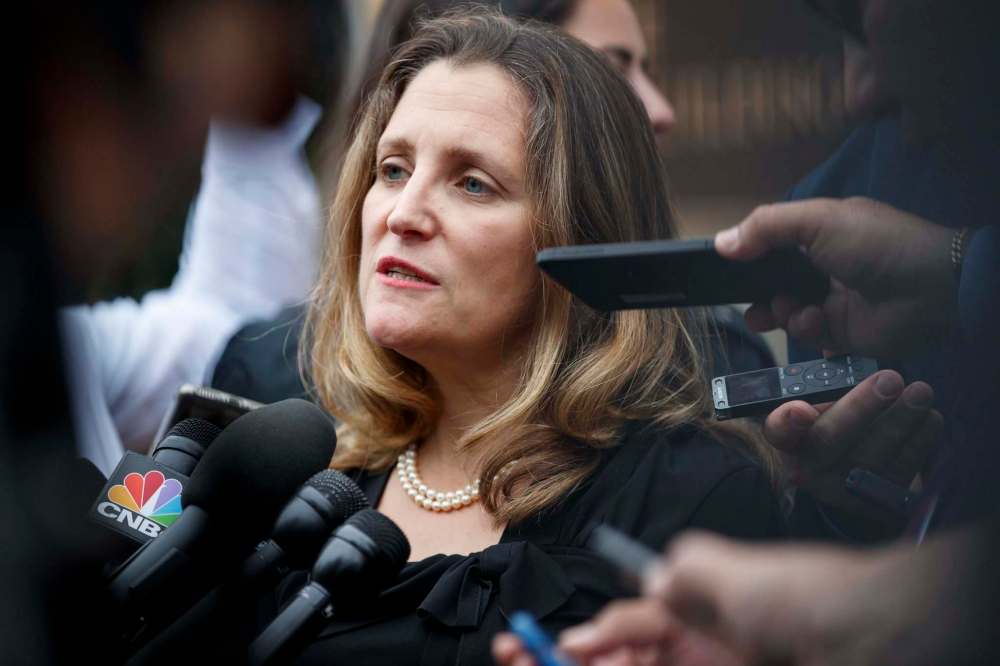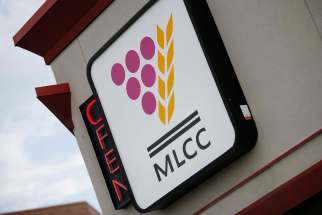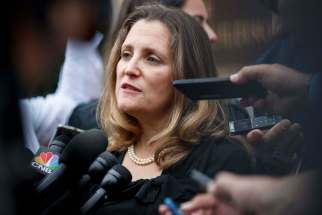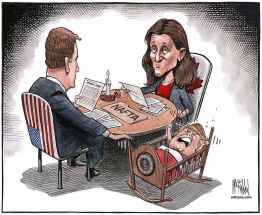Canada can’t buckle under NAFTA time pressure
Read this article for free:
or
Already have an account? Log in here »
To continue reading, please subscribe:
Monthly Digital Subscription
$0 for the first 4 weeks*
- Enjoy unlimited reading on winnipegfreepress.com
- Read the E-Edition, our digital replica newspaper
- Access News Break, our award-winning app
- Play interactive puzzles
*No charge for 4 weeks then price increases to the regular rate of $19.00 plus GST every four weeks. Offer available to new and qualified returning subscribers only. Cancel any time.
Monthly Digital Subscription
$4.75/week*
- Enjoy unlimited reading on winnipegfreepress.com
- Read the E-Edition, our digital replica newspaper
- Access News Break, our award-winning app
- Play interactive puzzles
*Billed as $19 plus GST every four weeks. Cancel any time.
To continue reading, please subscribe:
Add Free Press access to your Brandon Sun subscription for only an additional
$1 for the first 4 weeks*
*Your next subscription payment will increase by $1.00 and you will be charged $16.99 plus GST for four weeks. After four weeks, your payment will increase to $23.99 plus GST every four weeks.
Read unlimited articles for free today:
or
Already have an account? Log in here »
Hey there, time traveller!
This article was published 12/09/2018 (2646 days ago), so information in it may no longer be current.
For a day, at least, the antagonism was set aside, and an atmosphere of respectful civility was embraced when the subject of the North American Free Trade Agreement was raised.
“Forget what you read about NAFTA negotiations and Twitter wars; that’s not who we are,” U.S. Ambassador Kelly Craft said on Tuesday, the 17th anniversary of the 9/11 terrorist attacks, while addressing a crowd in Newfoundland about that province’s crucial role in accommodating stranded airline passengers after U.S. airspace was shut down and all planes were grounded on Sept. 11, 2001.
In reference to the ongoing NAFTA talks, which have been derided constantly by U.S. President Donald Trump in rally-speech threats and disparaging tweets associated with Canada’s role in the deal, Ms. Craft offered a conciliatory note in keeping with the day’s solemnity: “Sure, it’s business and it’s important, but Gander is the place that — in a snapshot — illustrates the Canada/U.S. relationship.”

The ambassador’s sentiments are comforting, but it’s the attitude and antics of Mr. Trump that will have much more effect on NAFTA’s fate as renegotiation efforts enter their final stretch. The U.S. president has demanded an agreement by the end of September, threatening to proceed with a bilateral U.S.-Mexico deal reached last month if Canada can’t come to terms.
For her part, Foreign Affairs Minister Chrystia Freeland on Tuesday seemed inclined toward optimism when she spoke to reporters in Washington, D.C., before heading into a meeting with U.S. Trade Representative Robert Lighthizer. “Maybe (the 9/11 anniversary) helps us… put into a little bit of historical perspective the importance and the significance of the relationship between Canada and the United States.”
Recent analysis suggests three Canadian priorities must be addressed before a revised NAFTA can be signed. The most contentious is supply-management protection in Canada’s dairy sector; numerous economists have predicted that Canada will offer concessions to allow U.S. dairy producers greater access to the northern market, similar to those given in trade deals with the European Union and Pacific Rim nations.
Also at issue are ownership restrictions on Canadian media companies — the U.S. would like the cultural-exemption clause removed from the reworked NAFTA — and the dispute-resolution mechanism known as Chapter 19, which calls for binding arbitration in cases of international trade disputes. Canada has insisted Chapter 19 is essential to any continuing trade agreement, while the U.S. is seeking to have disputes settled in American courts.
Failure to find common ground on these issues — in particular, an agreement on dispute resolution — will make it virtually impossible to reach an agreement by month’s end. With Ms. Freeland having left Washington after Tuesday’s discussions, to attend a Liberal caucus retreat in Saskatchewan where she will deliver an in-person briefing to Prime Minister Justin Trudeau, the number of days available for to-the-wire NAFTA negotiations seems too limited for the daunting task at hand.
The ever-impatient Mr. Trump needs a win he can trumpet going into November’s U.S. midterm elections; the Sept. 30 NAFTA deadline is an artificial one he created to suit his needs. More Twitter-issued rhetoric is sure to be delivered as the final stretch of negotiation resumes.
All of which makes it exceedingly important for Mr. Trudeau to hold fast to the declaration he made during this week’s stop in Winnipeg: “We are better off having no NAFTA than a bad deal for Canada.”







